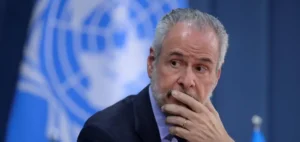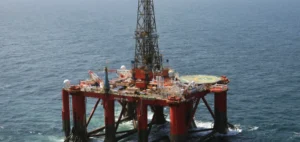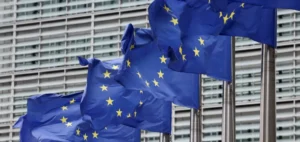The protection of the EU’s critical infrastructure after the sabotage of the Nord Stream gas pipelines in the Baltic Sea will be discussed next week at the informal summit of EU leaders in Prague, European Council President Charles Michel announced on Saturday.
“Sabotage of #Nordstream pipelines is a threat to the EU,” he tweeted after receiving Danish Prime Minister Mette Frederiksen. “We are determined to secure our critical infrastructure. Leaders will address this issue at the upcoming summit in Prague,” he announced.
Mrs. Frederiksen also met with NATO Secretary General Jens Stoltenberg during her visit to Brussels.
Underwater explosions equivalent to “hundreds of kilograms” of TNT are at the origin of the leaks discovered on the Nord Stream 1 and 2 gas pipelines in international waters off the Danish island of Bornholm, and “all available information indicates that these explosions are the consequence of a deliberate act”, said Sweden and Denmark in an official report submitted to the United Nations.
The Secretary General of NATO assured Friday that the allies will defend their strategic infrastructure and participate in the ongoing investigation to “determine who is behind these attacks.
EU leaders will meet Thursday in Prague with their counterparts from 17 countries of “greater Europe” to address the challenges posed by the Russian-led war in Ukraine and launch the European Political Community project. This meeting will be followed on Friday by an informal summit of the 27.






















